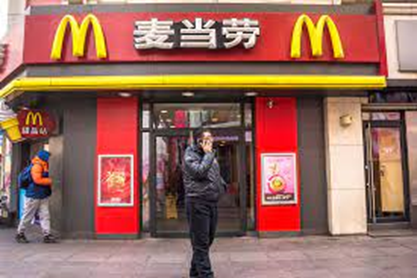McDonald’s is investing in China to tap ‘massive opportunity’

McDonald’s has reached a deal to increase the company’s stake in its China business to less than 50%. The company also expressed its belief that it will grow in the second-largest economy on earth.
The change is starkly different from the current trend of multinational corporations reversing investment in China or even leaving the market entirely due to economic and geopolitical problems.
The deal to purchase the investment firm Carlyle’s 28% stake in McDonald’s China operation, which includes outlets that are located in Hong Kong and Macau, will result in McDonald’s stake increase to 48 percent. A consortium headed by China’s state-owned conglomerate CITIC is the sole owner with 52% stake.
“We believe there is no better time to simplify our structure, given the tremendous opportunity to capture increased demand and further benefit from our fastest-growing market’s long-term potential,” McDonald’s CEO Chris Kempczinski said in a statement released on Monday.
Financial terms weren’t disclosed however two sources with knowledge of the transaction claimed that the deal valued this China unit at approximately $6 billion.
This is a lot more than the value it was valued at in 2017, when McDonald’s was willing for the sale of 80% its business to CITIC the investment arm of CITIC Capital, now referred to under the name Trustar Capital — and Carlyle for up to $2.1 billion. In the past, the US company had hoped to expand rapidly without spending a lot of its own funds.
It’s smaller than the estimated value of $10,000 billion which Carlyle and Trustar had at the time sought according to various sources who have said previously.
The sources weren’t authorized to talk to the media regarding the transaction and refused to identify themselves. McDonald’s did not comment on the value amount. Carlyle was also unable to comment.
Since 2017 there have been an increase in McDonald’s locations in China has increased by five times to 5,500, and the country is now the second largest market. McDonald’s plans to open more than 10,000 stores across China in 2028.
The Chinese business has also triggered sales growth of over 30% from September 2019 the company announced in its statement.
